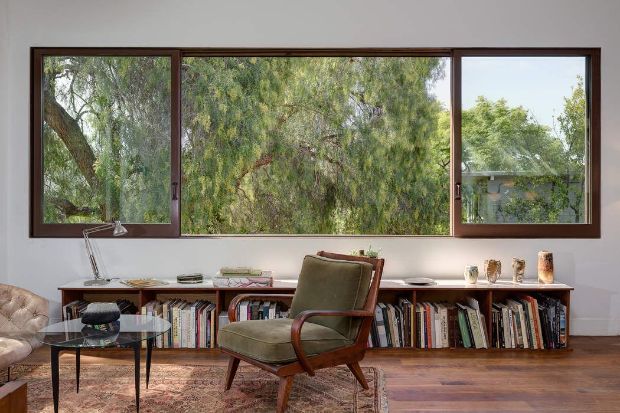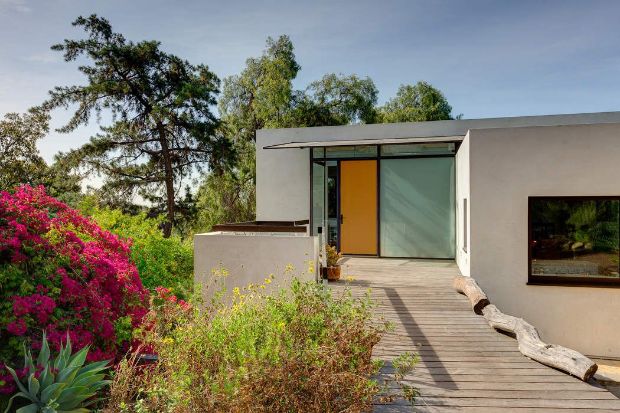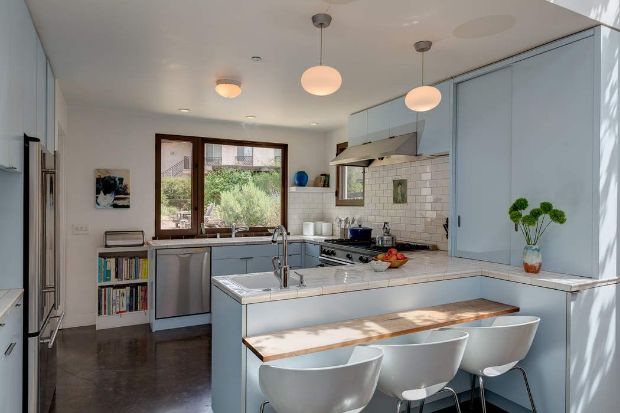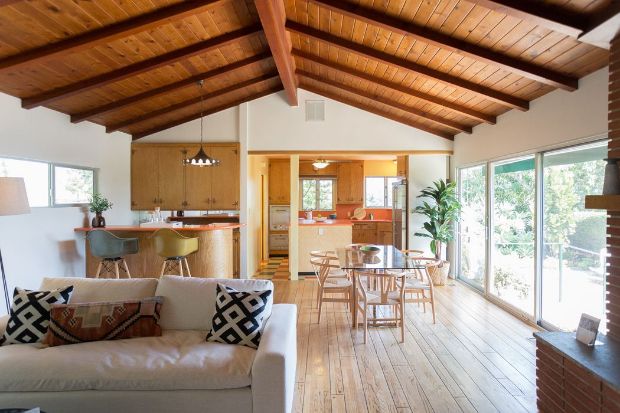How do you know when you’re ready to buy your first house? For first time homebuyers, these days, and especially in Los Angeles, it’s not when you turn 30 or 35 or 40, or when you get married, or make your first $100,000, or adopt a dog, or get pregnant, or receive a promotion. No, things are a bit more complicated in 2018. Most people don’t know if they’re ready for home ownership. Or if they’re even ready for talking to a lender or a real estate agent. The truth is, everybody is ready to talk to a lender and a real estate agent. No matter your financial situation it is important to begin the process, get all your questions answered, and then start your home search. My suggestion? Find a Home Buyer Workshop near you and then check out these 7 signs that you are ready to buy your first home and check off as many boxes as possible! Say you only check off 5/7? Don’t let that get you down. Now you know. Let’s talk. We’ll get you to 7/7 ASAP.

1. You have job security.
How do you know when you have job security? It’s more how about when you begin to feel secure in your job. The longer you have a position or the more years you have owning a successful business, the more likely that your job will be viewed as steady enough for home ownership.
Do you hate your job and are looking for a way out? Maybe not the best time to begin the home ownership journey.
In general, you don’t want to put more than 30 percent of your monthly income toward a mortgage payment. However, can you give up, say, that glass of wine at dinner or wait until that movie you want to see hits Amazon or those shoes you’ve been eyeing go on sale? If so, you should be relatively comfortable putting up as much as 50 percent of your income toward your mortgage payment. Again, only if you know you can live a bit leaner at least until you get a raise. Which, by the way, have you asked for? With a higher paycheck you don’t have to put as large of a percentage of your total monthly income toward your house payment. The extra income definitely takes away a financial vulnerability and allows you to save for future purchases, investments, vacations, and emergencies. Sometimes, and I’ve had plenty of clients who can attest to this, the fastest way to get a raise is to ask for one.
2. You have saved enough for the down payment.
If you have at least a 10 percent down payment saved, great! If you have more than that, amazing! If you have absolutely nothing saved for a down payment, that is okay too because we’ll get you started with a savings plan that will work for you.
he reason why you want at least 10 percent down payment is so you can avoid the Private Mortgage Insurance (PMI) requirement. While you usually need to put 20% down to avoid the PMI, I know of some great programs where you only need to put 10% down. But, yes, money talks. 20% or more can and does give clients the edge. The more you can put down, the lower your monthly payment will be, setting yourself up for a much stronger financial position.
Loans are still available with down payments below 20 percent, especially through programs such as FHA loans that assume part of the risk for banks. However, you will normally need to pay private mortgage insurance (PMI) with lower down payments, adding to the overall debt and monthly payments. We would do a thorough calculation of the expenses to understand whether you can truly afford a home right now, or a year from now, or five years from now.

3. You have good credit.
I know, some of us have worked for years improving our credit. College, cars, trips – debt can add up. So, if you’ve got your debt paid off and have diligently watched your credit report and you’ve seen that number go up into the “Good” or “Very Good” hemisphere you’re finally able to get a better interest rate. By being able to qualify for a better interest rate, it means you can enjoy a lower monthly mortgage payment, making the option to become a homeowner a more affordable reality.
In addition and in theory, you’ve eliminated most if not all of your outstanding credit card and car payment debt so that that extra cash flow will be able to cover other expenses related to being a homeowner, such as property tax, homeowners’ insurance, repairs and maintenance and furnishings.
4. You’re Tired of Renting
Unless you have one of those dreamy, rent controlled apartments with a great landlord and yard space in your ideal neighborhood type of leases (and some of you do!), renting can be a major bummer. Paying for someone else’s mortgage payment when you could be paying your own is an unfortunate reality. Renting provides more freedom and may be cheaper in the short term, but owning a home typically offers greater financial rewards through tax breaks, equity, and other factors. We’ll identify the pros and cons of both options and come to an educated decision based on the current market, your finances, and your future plans.
When you rent, you can’t make any upgrades. I mean, you can and sometimes you should, but usually it’s a waste of time and money to do so. Buying a home comes with its own sense of pride. You can finally make upgrades, plant a garden, paint the walls, tear down a wall! You can finally make it your own.

5. You want to settle down.
Buying a house is a huge investment so you want to make sure you don’t plan on moving in the next few years. This type of investment is meant for the long-term, considering most mortgages are the traditional 30 years. While you don’t have to decide to stay firmly planted for that long, it is important to stay put for at least five to ten years in order to not lose on this investment.
If you see your roots in the same city for a while because of a career or to ensure the kids enjoy their school life, this could be the time to buy a home. However, if you are handy, you may get a home that needs fixing up and then fix the home up and sell a few homes, in order to be able to get a larger or better home than you first envisioned.
6. You want to take advantage of equity.
Buying a home today is one of the best ways to guarantee your financial independence tomorrow. I mean, not tomorrow tomorrow, but in the future, in the long term.. One of the greatest benefits of buying your first home is the equity it accumulates over time. As the gap between how much you owe and how much your home is worth widens, the equity in your home becomes like a savings account. Knowing that your equity can help fund a college education, prepare you for retirement, or save you from financial emergencies can provide you with great peace of mind.

Best of luck!
Tatiana
Tatiana Tensen – The EastSide Agent
CalBre#: 1954701
tatiana.tensen@sothebyshomes.com | (937) 243-2349
Sotheby’s International Realty – Los Feliz Brokerage
1801 N Hillhurst Avenue Los Angeles, CA 90027